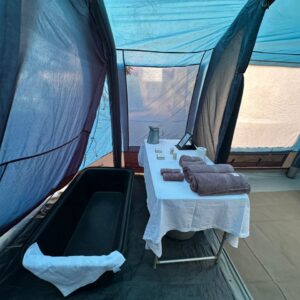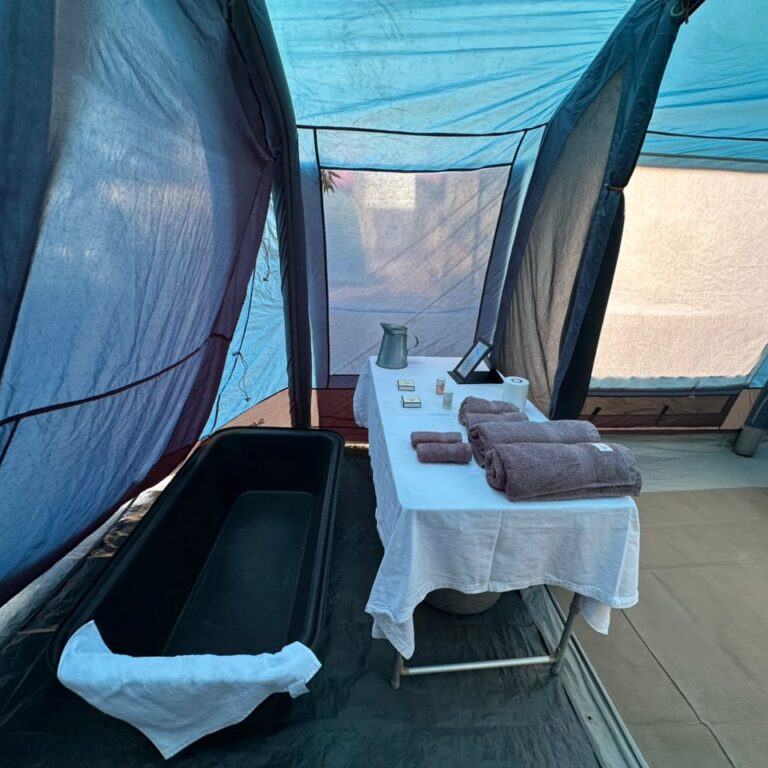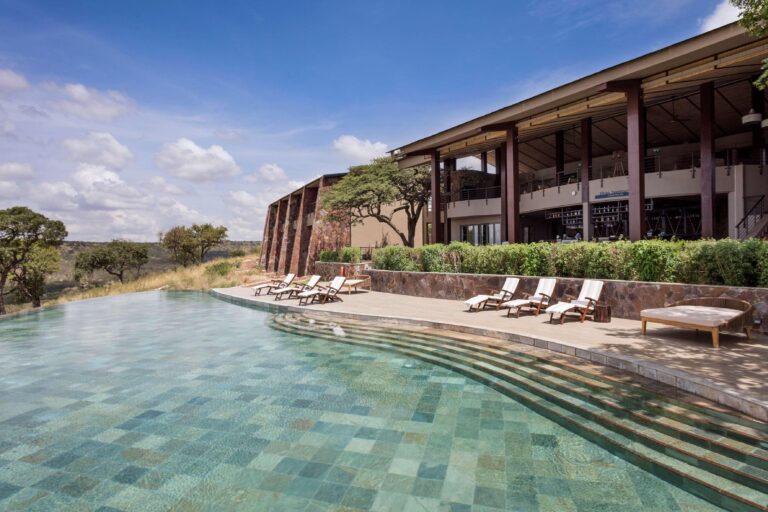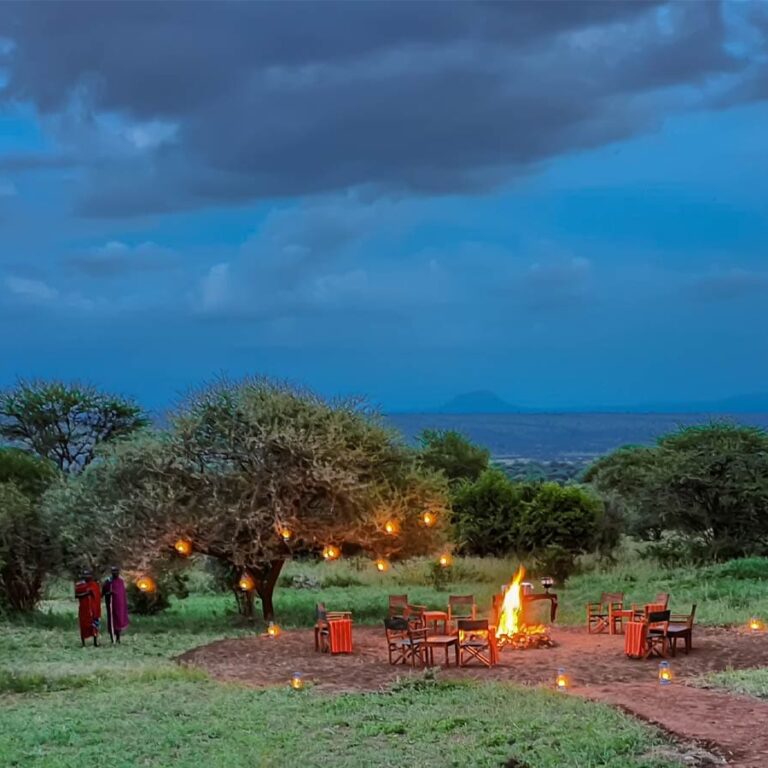African safaris are expensive due to factors like the remoteness of wildlife destinations, which increases transportation costs; the need for experienced, professional guides; the operation of high-quality, often all-inclusive lodges and camps; and mandatory park and conservation fees that fund wildlife protection. Exclusivity, private tailor-made small group sizes, and the luxury services offered in many packages also contribute to the high prices. When thinking about an African safari, many travelers immediately envision an adventure of a lifetime—encountering majestic wildlife, vast landscapes, and an unparalleled sense of adventure.
However, many are also taken aback by the seemingly high costs associated with booking such an experience. From remote locations to luxury accommodations, the price of an African safari can easily exceed what most people expect. But why exactly are these safaris so expensive? In this detailed guide, we explore the various factors that contribute to the cost of an African safari and why it remains one of the most exclusive and breathtaking travel experiences available.
Remote Locations: The Beauty of the Unreachable
One of the most significant factors contributing to the expense of an African safari the remote and often difficult-to-access locations. Many safari lodges and camps are situated in wildlife conservation areas or private game reserves that are far from the nearest cities. These regions are often in areas that require specialized travel arrangements, including small planes, helicopters, or long drives over rugged terrain. The remoteness of these areas ensures that the environment remains pristine and undisturbed, but it also drives up the costs due to the logistical challenges involved. The sheer isolation of these locations also means that supply chains for food, water, and materials can be costly. Additionally, the lack of infrastructure and the need for specialized transportation add to the overall cost of getting tourists into these untouched wildernesses. Ultimately, the price is a reflection of the exclusive nature of the experience.
Infrastructure: Building and Maintaining Luxury
Building and maintaining infrastructure in these remote locations is no small feat. Safari lodges and camps must offer a luxurious experience while ensuring they meet high standards of comfort and safety. This requires significant investments in both construction and ongoing maintenance. Every lodge, tented camp, or exclusive villa is designed to blend seamlessly with the surrounding environment, offering guests a high-end experience while minimizing the impact on nature. Additionally, the roads, airstrips, and utilities in these remote areas are often rudimentary and expensive to maintain. This is a direct cost that is factored into the price of the safari. With the growing demand for eco-friendly accommodations, safari companies must also meet sustainability standards—another reason why the prices remain high.
Staff to Guest Ratios: Personalized Service at Its Best
A luxury safari experience typically includes a high staff-to-guest ratio. For example, in some exclusive safari camps, there may be as many as five to ten staff members for every two to four guests. This ensures that the service provided is exceptional, catering to the individual needs of every guest. Safari staff members include professional guides, trackers, chefs, butlers, housekeeping staff, and sometimes even security personnel. All of these individuals must be highly trained to provide an outstanding service while ensuring the safety of both guests and wildlife. The wages for these skilled professionals, as well as the costs of training and retention, are a substantial part of the overall cost.
Tips: How to Plan an African Safari? To plan an African safari, the best way to plan an african safari first to decide what wildlife and landscapes you want to see, to determine your destination, as different countries and regions offer unique experiences. Next, select a reputable tour operator or company that can handle logistics, lodging, and guides, as many lodges are exclusive to them. Then, book your trip well in advance, ideally a year ahead, to secure your preferred options. Finally, prepare for your trip by getting the necessary visas and vaccinations, and packing appropriate items like binoculars and cash for tips, to the ultimate guide to planning a successful first African Safari.
Supplies: The Cost of Luxury and Convenience
Supplying the necessary materials and goods to remote safari lodges and camps is another factor that significantly inflates the cost of an African safari. Everything from gourmet food, high-quality drinks, linens, toiletries, and even medical supplies must be transported into these remote areas, often at great expense. Moreover, in private game reserves or national parks, the safari companies go to great lengths to ensure that the quality of service remains top-notch. This includes sourcing luxurious supplies and specialty items to make the safari experience feel exclusive and indulgent, which naturally adds to the price tag.
What Makes an African Safari a Priceless Experience? An African safari is a priceless experience because it offers an unparalleled connection to nature, the thrill of witnessing diverse wildlife in their natural habitat, and the opportunity to explore vast, unique landscapes and vibrant cultures, creating deeply personal and transformative memories that a typical vacation cannot provide. This immersive journey allows for deep relaxation, a renewed sense of energy, and a unique perspective on life that leaves a lasting impact.
Professional Guides: The Heart of the Safari Experience
A key component of any African safari is the professional guide. Guides are often local experts who have spent years learning about the wildlife, ecosystems, and the history of the region. They are integral to the safari experience, as they provide valuable knowledge about the wildlife and their habitats, as well as ensuring safety during game drives. Highly trained and knowledgeable guides are not only essential for an educational and enjoyable experience but are also compensated at high rates due to the expertise required. They are skilled in navigating the wild terrain while also adhering to strict ethical guidelines for wildlife interaction, which adds to the overall expense of a safari.
What You Need to Know About Safaris Before Booking a Trip? Before booking a safari, consider your budget, desired experience, and timing, then research destinations and tour operators thoroughly, prioritizing those with positive reviews and clear itineraries. Once booked, plan for necessary vaccinations and documents, pack neutral-colored, layered clothing for comfort and protection, and mentally prepare for early mornings, long days, and a slow pace. On the ground, follow your guide’s instructions, stay quiet, and keep a respectful distance from wildlife to enhance the experience and ensure safety.
Luxury Accommodation: A Unique Experience
The accommodation options on an African safari are often much more than just a place to sleep. Guests can choose from luxurious safari lodges, tented camps, and even private villas that offer five-star amenities in the heart of the wilderness. These accommodations are designed to provide both comfort and immersion in nature, featuring spacious rooms, outdoor showers, private plunge pools, and stunning views of the African savannah. The cost of these accommodations often includes personalized touches, such as gourmet meals, private butlers, and private game drives. The pricing reflects not only the exclusive nature of the accommodations but also the unique experience of staying in the heart of Africa’s wildlife zones.
All-Inclusive Packages: Convenience with a Price Tag
Many African safari companies offer all-inclusive packages, which bundle together everything from accommodation and meals to transportation and safari excursions. While these packages may seem like a bargain at first glance, they often come with a hefty price tag due to the luxury services they include. In addition to the traditional safari activities, these all-inclusive packages frequently feature spa treatments, gourmet dining, and even private bush dinners under the stars, all of which add value to the overall experience but increase the cost of the safari.
Which African Country Has the Cheapest Safari? The cheapest safaris in Africa can generally be found in Africa, particularly through camping options that leverage favorable exchange rates, good local infrastructure, and lower costs for accommodation and transport. Destinations such as Tanzania can also be affordable, especially if you join group tours or focus on parks like Tarangire and Arusha National Park instead of pricier options like the Serengeti and Ngorongoro Crater.
National Park Fees & Conservation Levies: Contributing to Sustainability
Conservation is at the heart of the African safari experience. To ensure the protection of wildlife and their natural habitats, national parks and game reserves often charge significant entrance fees and conservation levies. These fees directed toward funding conservation programs, wildlife protection efforts, and community development projects. These levies are an essential aspect of the cost of a safari, as they contribute directly to the preservation of Africa’s natural wonders. Without these funds, many game reserves would struggle to maintain their ecosystems and protect endangered species.
Community Benefits: Empowering Local Communities
An important aspect of many African safaris is the impact they have on local communities. Safari companies often work closely with local villages to provide employment and economic opportunities, thereby supporting the growth and development of local economies. The cost of the safari often reflects the ethical considerations involved in supporting these communities. Safari companies typically invest in programs that promote education, healthcare, and sustainable agriculture within the surrounding areas. This holistic approach helps preserve the environment while uplifting the communities that live alongside these protected wilderness areas.
Limited Capacity: Exclusivity at a Premium
Many safari camps and lodges have a limited capacity, often with no more than 10-15 rooms or tents in order to maintain an exclusive, intimate experience for guests. With fewer rooms and a higher guest-to-staff ratio, these limited accommodations ensure that each guest enjoys a more personalized and luxurious experience. This level of exclusivity often leads to higher demand, which drives up the prices. Limiting the number of visitors also helps to reduce the environmental impact on the area, ensuring that the wilderness remains pristine and undisturbed.
Highlight: This limited capacity is a deliberate choice to minimize the environmental impact of tourism and ensure a private, intimate experience for guests. Unlike a large resort that can benefit from economies of scale, a small camp must spread its considerable fixed costs – staff salaries, infrastructure maintenance, vehicle upkeep – among a limited number of guests. This fundamental economic reality means that the price per person must be higher to make the operation viable.
Exclusive Access: The Perks of Private Reserves
Some of the most expensive safaris take place in private game reserves that offer exclusive access to certain wildlife areas, often without the crowds found in national parks. This means guests can experience more private encounters with wildlife, along with custom-made itineraries tailored to their preferences. This exclusivity is a major selling point for high-end safari companies, and the premium price reflects the privacy and unique access to some of Africa’s most remote and protected wilderness areas.
Travel tips: In many private conservancies, which are adjacent to or within national parks, safari operators have exclusive access to vast tracts of land. This means you will not encounter dozens of other vehicles vying for a view of a lion pride. This exclusivity is a key selling point of a luxury safari, ensuring a truly private and immersive experience. However, this privilege comes at a cost. Operators must pay high concession fees to the landowners (often local communities) for this exclusive access, a cost that passed on to the guest.
Booking Direct vs With an Agent: Finding the Right Price
When it comes to booking a safari, travelers often face the decision of whether to book directly with the safari company or through an agent. Booking directly may save money on service fees, but agents often offer packages that include additional perks like VIP access or better availability during peak seasons. Safari companies sometimes offer discounts or special deals for direct bookings, but agents often provide extra value in terms of personalized itineraries and added convenience. Ultimately, the cost of booking through an agent or directly depends on the type of safari and the level of service expected. Travelers must carefully weigh these options to determine the most cost-effective approach for their dream safari.
Tips: While booking a safari directly with a lodge might seem like a way to save money, it’s often more beneficial to use a specialized safari agent. These agents possess an in-depth, firsthand knowledge of different camps, operators, and regions. They can tailor an itinerary to your specific interests and budget, handle all the complex logistics (internal flights, transfers, and accommodations), and provide a layer of support should anything go wrong. The agent’s fee typically built into the tour price, and their expertise often worth the added cost, saving you from potential pitfalls and ensuring a smooth, stress-free journey.
Why Is An African Safari So Damn Expensive?
African safaris are expensive due to high operational costs for remote locations, requiring flights and logistical support to transport supplies and personnel to and from parks. Luxury accommodation and private access in exclusive reserves significantly drive up prices, as does a limited tourism market consisting mostly of wealthier international travelers. Additionally, expensive international and internal flights, park fees, and the high cost of maintaining remote infrastructure contribute to the overall expense.
Why Traveling in Africa is difficult and expensive?
Traveling in Africa is difficult and expensive due to fragmented regional infrastructure, a lack of intra-African air connectivity, high taxes and fees for airlines, and inconsistent visa requirements, all of which increase operating costs and restrict market growth. This creates a cycle of low demand, few flights, and high fares, making intra-continental travel a challenge for both Africans and international tourists.
Things You Need to Know Before Backpacking Africa
Before backpacking Africa, you must get appropriate vaccinations and travel insurance for medical emergencies, plan your route considering long travel times, pack essential clothing that is modest and suitable for diverse weather, carry specific health and safety items like sunscreen and insect repellent, arrange for necessary documentation such as a valid passport and scanned copies, and budget for the continent, which can be expensive.
Why are african safaris so expensive for tourists?
African safaris are expensive due to a combination of factors, including the extreme remoteness and limited infrastructure of wildlife areas, which necessitate complex logistics and high operational costs for supplies, staff, and specialized transportation. Furthermore, a high staff-to-guest ratio, the cost of employing professional guides, substantial park and conservation fees, and the demand for luxury, all-inclusive accommodations contribute significantly to the overall price of a safari. Finally, many countries adopt a “high price, low density” tourism policy to protect fragile ecosystems from mass tourism.
Why are african safaris so expensive in usa?
African safaris are expensive due to factors like the logistical challenges of operating in remote, self-sufficient locations, high costs for conservation efforts and park fees, the need for specialized staff and equipment, and a “high price, low density” tourism policy to protect fragile ecosystems. Many packages include luxury accommodations and exclusive, once-in-a-lifetime experiences, further increasing the price.
Why are african safaris so expensive in Europe?
African safaris are expensive due to high logistical costs from operating in remote areas, requiring costly transportation of supplies and staff, especially for luxury lodges. Additionally, significant expenses include daily conservation and park fees, specialized local staff salaries, and the need for investment in high-quality infrastructure and staffing ratios. The cost of international and regional flights to reach these remote locations also contributes significantly to the overall price.
How much does a 2-week African safari cost?
A two-week African safari can cost anywhere from $3,000 to over $15,000 per person, with a wide range depending on destination, accommodation, and chosen activities. Budget-friendly options include camping or budget hotels, while mid-range safaris offer comfortable lodging, and luxury options feature high-end lodges and exclusive experiences. Major additional costs to factor into your budget include international flights, visa fees, travel insurance, vaccinations, and tips.
How much does a 10-day African safari cost? A 10-day African safari can cost anywhere from $2,500 to over $12,000+ per person, depending on your chosen travel style and destination. Budget safaris estimated at $2,500–$3,500, mid-range at $4,000–$6,000, and luxury options at $8,000–$12,000+, with specific costs varying by region, accommodation, and the inclusion of internal flights.
How much does a 1-week african safari cost? A one-week African safari can cost between $3,500 and over $20,000 per person, depending on the safari type (value budget African safari/ Affordable African Safari Tours, mid-range, or luxury), the destination country, the season, and included services. For example, budget-friendly options can start around $350 per day, while luxury safaris can easily exceed $1,000-$2,000 per day, not including international flights.
Why are African photo safaris so expensive compared to other destinations?
African photo safaris are expensive due to high operational costs for remote, self-sufficient lodges, the need for specialized equipment and expert photo guides, the cost of accessing exclusive areas with limited guest numbers, and the logistical complexity of transportation, park fees, and high-quality service in remote wilderness settings.
Are you ready to check African Safari off your bucket list?
Yes, African safaris are a classic bucket list experience offering once-in-a-lifetime wildlife encounters, breathtaking scenery, and opportunities to connect with local cultures and conservation efforts. However, a successful safari requires planning and preparation, including choosing the right destination, packing appropriate gear, setting realistic expectations for wildlife sightings, and considering ethical tourism practices to ensure a positive and memorable trip.
Why Are Safari in Tanzania so Expensive?
Why Climbing Kilimanjaro is Too Expensive?
Complete Guide To Walking Safari in Tanzania
Most Remote Places In Africa Worth Visiting
Kilimanjaro price list
In conclusion:
The high cost of an African safari is not arbitrary. It is a reflection of the intricate logistics, personalized service, and deep commitment to conservation and community that define the industry. The money you spend pays for a journey into some of the world’s most remote and beautiful places, but it also directly contributes to their protection. While the price may be steep, the value lies in the unforgettable memories, the contribution to a sustainable future, and the sheer privilege of experiencing Africa’s wilderness in a way that is both luxurious and deeply meaningful.








